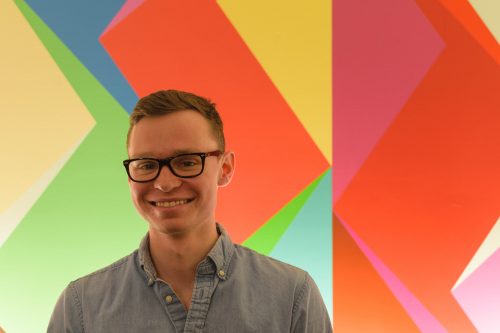Growing up in the suburbs of NYC in Ossining, New York, current Yale junior Dan McQuaid always had a personal relationship with cancer, the focus of his interests and research. A few members of his close family were diagnosed with it, and during McQuaid’s freshman year of high school, one of them passed away. “I read a lot — read everything I could about cancer,” McQuaid said. In particular, McQuaid wanted to study cancer metastasis, the spread of cancer from a primary tumor to other parts of the body, which accounts for the vast majority of cancer-related deaths. With renowned research laboratories surrounding him, McQuaid reached out to nearly forty researchers. Most did not respond or were not interested.
One researcher, however, was receptive to his hopes to work in a laboratory: Goutham Narla, a scientist studying cancer biology and genetics at Mt. Sinai Hospital. Narla invited McQuaid to work in his laboratory the summer before his junior year of high school, and McQuaid continued to work there throughout the school year. Later, when Narla moved to work at Case Western in Ohio, Narla invited McQuaid to continue doing research there as well. The summers he spent researching the tumor suppressor protein KLF6 formed the foundation for his successes in science research competitions during his senior year, during which he became one of the forty national finalists in the Intel Science Talent Search.
However, McQuaid felt some frustration about his summer research experience at Case Western. “Just as I was figuring things out and getting good work done, I was back in New York. I felt that if I had a year there, I could generate some useful research,” said McQuaid. Under Narla’s guidance and with the reassurances to his parents, McQuaid set out in August of 2013 to spend a year at Case Western researching how to repurpose tricyclic neuroleptics — a class of molecules used in antidepressant drugs. Specifically, McQuaid studied how a segment of one of these molecules induces anticancer effects in cells. “That segment activates an enzyme called PP2A (Protein Phosphatase 2A), which removes phosphate groups from proteins to regulate their activity,” McQuaid said. PP2A is expressed ubiquitously, but because it is inactivated in cancer cells, they can proliferate freely.
With that knowledge, McQuaid developed a combination therapy with his drug and another FDA-approved anti-cancer agent that can functionally synergize with the activation of PP2A. McQuaid filed a patent for this technology and included his discovery with the patent of his mentor’s company. The company’s entire technology was licensed to other companies for 252 million dollars.
Though this achievement was extremely gratifying for McQuaid, he found himself burnt out after long days in the laboratory, working from ten in the morning until after midnight. “My research lifestyle was not sustainable at Case Western, and I needed to take some time off. Class restrictions made long working hours in the lab difficult,” McQuaid said. As a result, he chose not to do research at Yale until his junior year. He eventually pursued working with Craig Crews, head of the Crews laboratory, which partly brought him to Yale in the first place. There, he researches Proteolysis Targeting Chimeras (PROTACS), a technology developed by Crews based on small molecules that target and degrade specific disease-relevant proteins.
Outside of class, McQuaid is involved with the Yale Undergraduate Research Association (YURA), for which he is currently co-president and has helped to lead the first undergraduate research conference at Yale this past February. He is also involved in increasing global public health awareness through the Foundation for International Medical Relief of Children (FIMRC) and is a counselor for Camp Kesem, a camp for kids who have or have had a parent with cancer. In the future, he hopes to conduct research in oncology, but his experience shadowing his mentor Narla in the clinic at Case Western kindled his interest in pursuing an MD-PhD as well.
Without a doubt, McQuaid is truly passionate about cancer research and the public health causes he helps drive on campus. But rather than becoming overly focused on something, he also recognizes the importance of reserving time for oneself — an important reminder for researchers and students alike. “No matter how much you love something, you’ll get tired of it if you don’t find a balance and have other parts of your life to focus on and develop,” McQuaid said. With that in mind, McQuaid hopes to continue helping others through his research for a long time to come.

